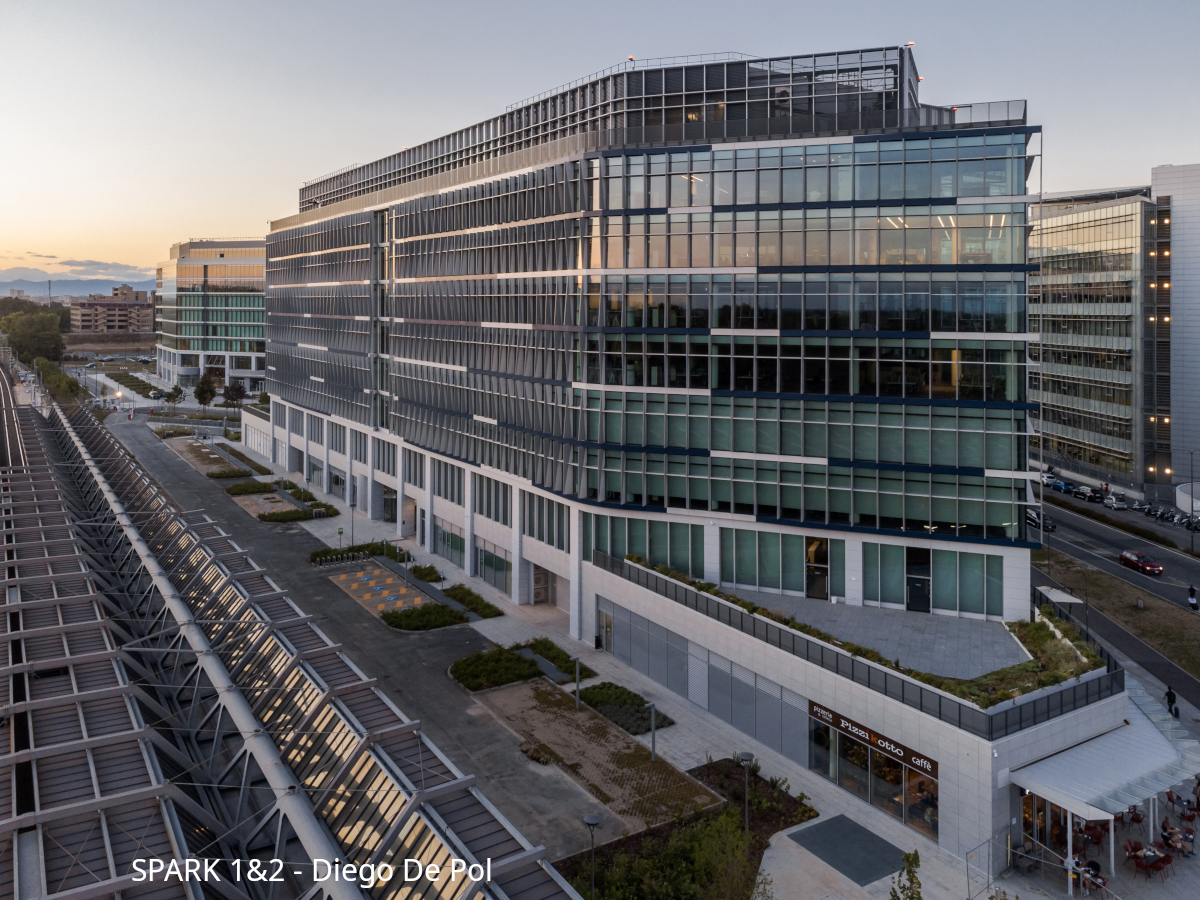
The Hague, 27 October 2025 — As building envelopes become more complex, Deerns’ façade specialists are setting a new standard for integrated, sustainable and high-performance design across Europe, expanding its team to match demand.
The façades of modern buildings are critical interfaces of energy, climate and comfort, as well as being architectural statements. Over the past decade, Deerns has seen remarkable growth in its façade services, driven by increasing market demand for specialised engineering that balances design ambition with technical precision.
Nicola Greco, Operations Director Façades at Deerns, says, “When we started ten years ago in Italy, façade consultancy was something new. Today, it’s essential in building design. Clients and architects ask for it, both to achieve their architectural vision and to ensure that all technical aspects are managed by specialists.”
From Niche Expertise to Mainstream Necessity
To match increasing demand, Deerns has expanded its footprint of providing façade expertise from its offices in Italy to France and the Netherlands, combining local market knowledge with international reach.
In countries like the UK and France, where façade consultancy is a long-established discipline, Deerns’ expertise bridges the gap between architectural vision and technical performance. In regions where the market is still evolving, Deerns is helping to drive its growth and raise standards for integrated, high-performance design.
Deerns’ façade services began as a specialist offering within the Italian market, where early collaborations with architects and developers steadily built confidence and repeat business. In Milan, a testing ground for high end commercial and cultural projects, Deerns’ early façade engineering projects proved that technical rigour could enhance rather than constrain architectural creativity.
The Cost of Getting It Wrong
The rise of performance-driven façades has highlighted the importance of early, holistic integration in the design process. Pieter Schepman, Unit Director Building Physics and Energy in the Netherlands explains, “Facade consultancy prevents financial surprises during the construction phase. When façades are developed as coordinated systems from the outset, rather than purely as visual statements, they can fully realise both design intent and technical excellence. Early collaboration helps avoid costly redesigns at tender stage and ensures that the completed building delivers on its original vision in quality, performance and aesthetics.”
With façades accounting for a significant portion of construction costs and serving as the building’s primary environmental shield, involving dedicated façade engineering from the concept stage is not just risk management. It’s an opportunity to ensure design ambition translates into lasting performance and value.
An Integrated European Network
To meet this growing need, Deerns has structured its façade services as an interconnected European network, pooling expertise across offices.
Marc de Winter, Technical Consultant for Façades in the Netherlands, remarks, “Deerns combines expertise such as façades, energy efficiency, fire safety, sustainability and building physics into a one-stop shop for architects and investors. It’s a ‘full support’ offering that eliminates the need to coordinate multiple consultants.”
De Winter sees a clear appetite for this integrated model. “In the Netherlands, we’re building a team that brings together all the disciplines needed for façade design. It’s not just about adding glass or panels. It’s about harmonising performance, aesthetics and cost.”
Building Relationships and Reputation
For Deerns, façade consultancy is far more than a technical discipline, it is a catalyst for enduring professional relationships. As Nicola Greco puts it, “The façade is where collaboration begins; it’s often the gateway to deeper partnerships across other engineering disciplines.”
Successful façade collaborations frequently lead clients and architects to re-engage Deerns for additional services such as MEP design, energy consulting or building physics.
This synergy between technical expertise and relationship building has already translated into tangible results:
- Long-term partnerships: Italian and international developers first approached Deerns for façade engineering and subsequently commissioned multiple projects in Italy after recognising the value of our integrated approach.
- Award-winning delivery: The Luxottica Digital Factory project in Italy, with its innovative façade design and engineering, earned Deerns and its collaborators an international award in London in 2023.
- Proven innovation: The Spark 1 project further reinforced Deerns’ reputation as a leader in high performance façade engineering, seamlessly merging architectural vision with manufacturable solutions.
Designing for Longevity
Façade engineering at Deerns does not end with construction. Increasingly, clients are asking for maintenance strategies to be integrated from the outset of design.
Greco explains, “We consider façade maintenance systems from the very start of the design process. Addressing them early helps avoid costly access or replacement solutions later on. More and more clients are recognising that long-term maintainability is an essential part of true sustainability.”
This lifecycle thinking aligns perfectly with Deerns’ broader mission: creating buildings that perform reliably and efficiently over time.
Schepman concludes, “Every façade we design tells a story of collaboration. By working together across borders, we’re not only meeting market demand. We’re helping shape the future of high-performance building envelopes.”
